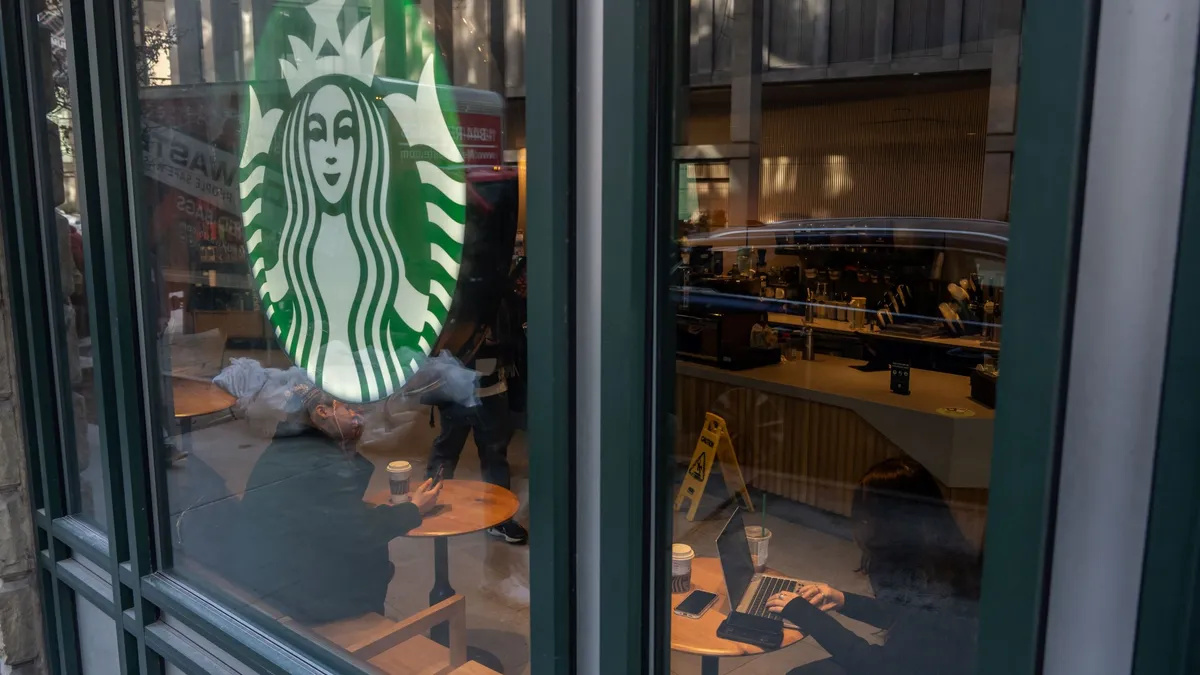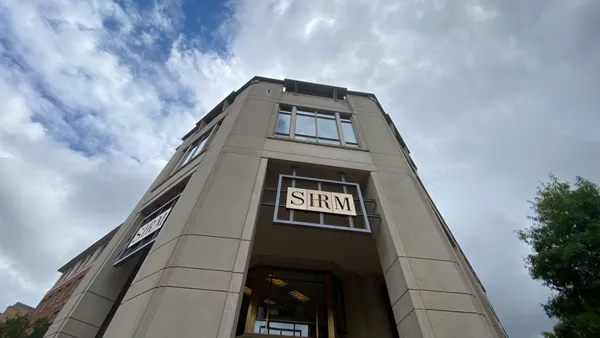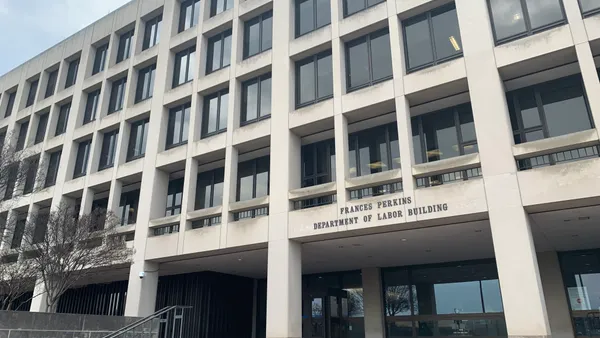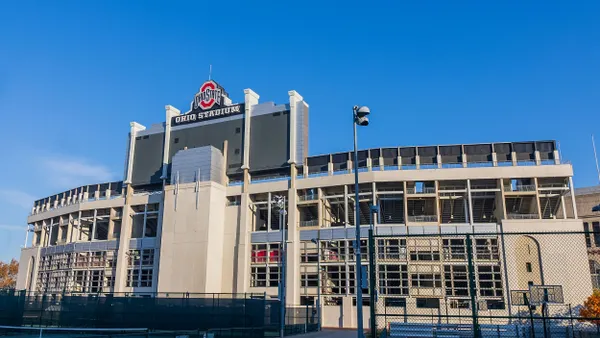Workers in Illinois, California and Colorado filed legal claims against Starbucks on Sept. 17, alleging the company violated state law when it refused to reimburse them for clothing purchased following a dress code change.
Starbucks issued a new dress code in April, announcing the changes would take effect May 12. Per the new policy, workers would be required to wear solid black shirts and bottoms in “any shade of khaki, black, or blue denim.” An internal dress code guide shared with HR Dive also touched on accessories, piercings, tattoos and other forms of personal presentation, although it is not clear which of those guidelines were new.
The company provided two shirts free of cost to go along with the changes.
Following the changes, three plaintiffs named in the Illinois lawsuit attempted to expense a variety of compliant clothing items, the cost of a nose piercing removal, and a pair of shoes, according to a court filing shared with HR Dive. The requested reimbursements were $97.56, $10 and $148.84, respectively.
Starbucks allegedly told the three workers there was “currently no established process for approving or reimbursing expenses related to apparel purchases outside of the resources Starbucks has already provided.”
The workers pointed to both a Starbucks employee manual that lays out a reimbursement policy for “approved and compliant business expenses” and the Illinois Wage Payment and Collection Act, which requires employees be reimbursed for “all reasonable expenditures or losses required of the employee in the discharge of employment duties and that inure to the primary benefit of the employer.”
Similarly, four workers named in the Colorado lawsuit said they weren’t reimbursed for dress code-related expenses, including waterproof shoes, that ranged from $87.90 to $253.50. They cited the Colorado Wage Claims Act, legal documents showed, which prohibits employers from imposing expenses on workers unless both parties have entered into an agreement. Colorado law also requires that employers cover mandated expenses that primarily benefit them, according to the lawsuit.
The three California workers reported spending similar amounts to comply with the dress code, filings shared with HR Dive show. They cited California Labor Code requirements that employers cover the cost of uniforms, including apparel of “distinctive design or color.”
In a statement to HR Dive, a Starbucks spokesperson said the dress code changes “provide our partners with simpler and clearer dress code guidance” and pointed to “record low” turnover, average hourly pay of $30 per hour and benefits like 18 weeks of parental leave. “More partners are getting the shifts they want,” the spokesperson said. “And more partners than ever recommend Starbucks as a great place to work.”
In contrast, in a statement released to HR Dive, one plaintiff said they were “already stretched thin by low hours and understaffing,” and that the extra costs constituted “a heavy burden.”
Starbucks Workers United, which protested the dress code changes in May, was not a party to the cases, a spokesperson for the union said.
















